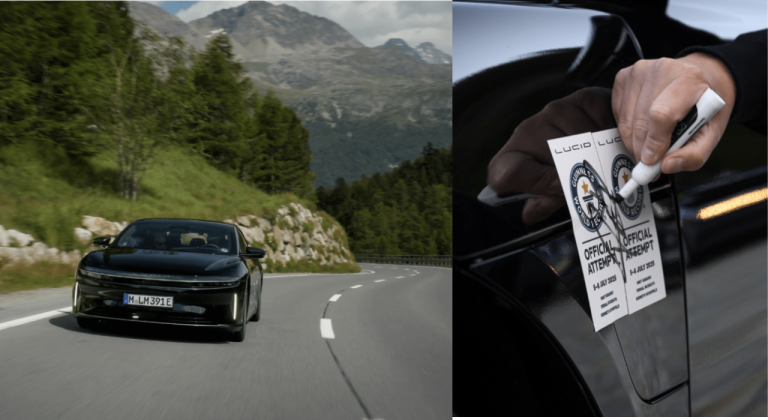Takeaways:
- 2025 will see a significant shift towards electric and autonomous vehicles.
- Major automotive brands are investing heavily in sustainable technologies.
- Innovations in car design and user experience are set to redefine driving.
As we look towards 2025, the automotive industry is gearing up for a transformative year. With advancements in technology and a growing emphasis on sustainability, the new cars of 2025 promise to deliver not only enhanced performance but also a greener footprint. This article will delve into the various innovations expected in the automotive sector, focusing on electric vehicles, autonomous driving capabilities, and the overall user experience.
Electric vehicles (EVs) have been steadily gaining traction over the past few years, and by 2025, they are expected to dominate the market. Major manufacturers such as Tesla, Ford, and Volkswagen are ramping up their production of EVs, aiming to meet the increasing consumer demand for sustainable transportation solutions. The 2025 models will feature improved battery technology, providing longer ranges and faster charging times.
For instance, Tesla is rumored to release a new version of the Model S, boasting a range of over 400 miles and ultra-fast supercharging capabilities. Meanwhile, Ford is set to unveil the all-electric F-150 Lightning, which combines the popular F-150 design with zero-emissions technology.
Another significant development in the EV landscape is the increased adoption of solid-state batteries. These batteries promise to deliver higher energy densities and greater safety compared to traditional lithium-ion batteries. Companies like QuantumScape are at the forefront of this technology, which could revolutionize the way we think about electric vehicles.
Alongside the rise of electric vehicles, autonomous driving technology is also making significant strides. By 2025, we expect to see enhanced levels of automation in new cars, moving closer to full autonomy. Major players like Waymo and Cruise are testing their self-driving systems in various cities, and the results are promising.
The introduction of Level 4 autonomy in certain urban areas could change the way we approach transportation. This level of automation allows vehicles to operate without human intervention in specific conditions. As safety and regulatory frameworks develop, we could see more manufacturers incorporating autonomous features into their 2025 models.
For example, the Mercedes-Benz EQS is set to feature advanced driver-assistance systems (ADAS) that not only assist the driver but can also take control in certain situations, greatly enhancing safety and convenience.
Moreover, the user experience in cars is evolving with the integration of cutting-edge technology. In 2025, we can expect vehicles to be equipped with advanced infotainment systems, featuring seamless connectivity with smartphones and smart home devices. Voice recognition and AI-powered personal assistants will become standard, allowing drivers to control navigation, music, and even vehicle settings with simple voice commands.
Additionally, augmented reality (AR) displays may become commonplace, providing drivers with real-time information about their surroundings directly on the windshield. This technology not only enhances safety by keeping the driver informed but also makes the driving experience more engaging.
Luxury brands are leading the charge in this area, with companies like BMW and Audi investing heavily in smart interiors that adapt to user preferences, creating a personalized driving environment.
Sustainability is another key focus for the automotive industry as we approach 2025. Beyond electric vehicles, manufacturers are exploring alternative fuels and eco-friendly materials. Hydrogen fuel cells are gaining attention as a viable option for reducing carbon emissions, with companies like Toyota and Hyundai pioneering this technology.
In parallel, the use of sustainable materials in car manufacturing is on the rise. Brands are increasingly sourcing recycled plastics and other eco-friendly materials to minimize their environmental impact. For example, Volvo has committed to producing vehicles with at least 25% recycled plastic by 2025.
The push for sustainability extends to manufacturing processes as well. Many companies are implementing greener production methods and striving for carbon neutrality in their operations.
Error generating image for paragraph: As we anticipate the cars of 2025, it’s clear that the automotive industry is on the brink of a major transformation. With electric vehicles leading the charge, advancements in autonomous driving, and a strong emphasis on sustainability, the future of driving looks promising. Whether you’re a tech enthusiast or simply looking for a greener mode of transportation, the innovations coming in 2025 will surely captivate and inspire.As we anticipate the cars of 2025, it’s clear that the automotive industry is on the brink of a major transformation. With electric vehicles leading the charge, advancements in autonomous driving, and a strong emphasis on sustainability, the future of driving looks promising. Whether you’re a tech enthusiast or simply looking for a greener mode of transportation, the innovations coming in 2025 will surely captivate and inspire.
Stay tuned as we continue to explore and update you on the latest developments in the automotive world!





